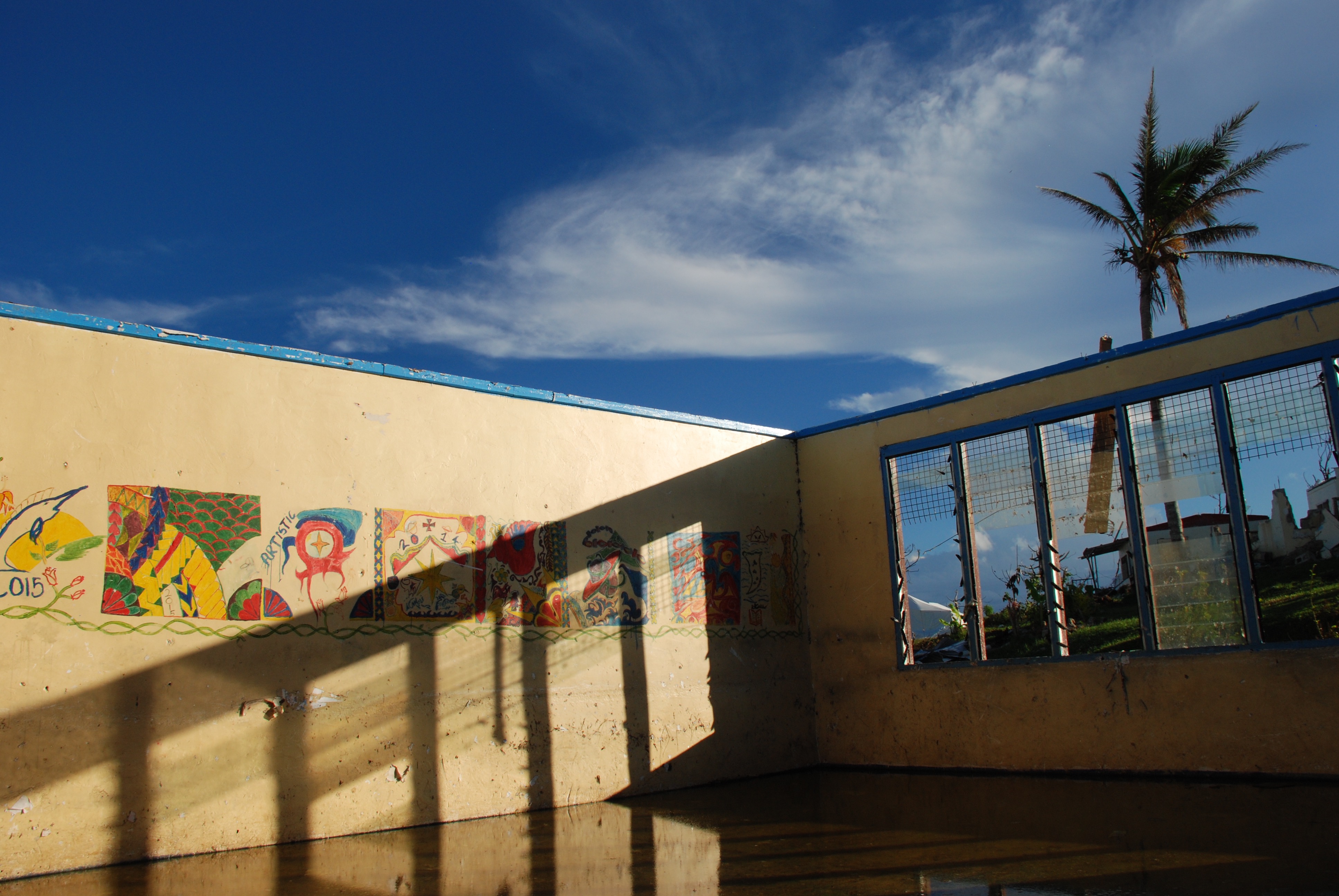Remains of a school on Koro Island in Fiji during the aftermath of Tropical Cyclone Winston that hit the country in 2016.
Suva, Fiji – The Government of Fiji through the National Disaster Management Office (NDMO) in partnership with the Pacific Humanitarian Team (PHT) and civil society partners convened early this year to discuss the development of Fiji’s Country Preparedness Package (CPP) that will strengthen Fiji’s disaster resilience and capacity to respond to disasters. The meeting involved key stakeholders in disaster preparedness and response, including Fiji’s Inter-cluster group.
The finalised CPP will outline Fiji’s existing national coordination structures and systems, policies and legislations, assessment protocols and Disaster Risk Management structure. The Preparedness Package is intended to strengthen preparedness and collaboration between national and international actors in disaster response. When utilising the CPP, all government and non-government humanitarian actors have now the means to stay aware of tools and services that can be used during a disaster emergency.
The CPP for Fiji is being developed with the support of the United Nations Development Program (UNDP), Disaster Resilience for the Pacific Small Island Development States (RESPAC) project and the United Nations Office for the Coordination of Humanitarian Affairs (UNOCHA) on behalf of the PHT.
“Coordination and collaboration in disasters is critical, and we must strengthen these partnerships in emergency and preparedness, so we can count on them when we need them most,” said Fiji’s Acting Permanent Secretary for Infrastructure, Transport, Disaster, Management, and Meteorological Services, George Tavo.
Participants at the meeting. (Photo: UNDP/Andrea Waqa–Montu)
Associate Project Manager for the RESPAC Project, Paula Cirikiyasawa, facilitating discussions at the CPP training. (Photo: UNDP/Andrea Waqa–Montu)
Chief Guest to the meeting Fiji’s Acting Permanent Secretary for Infrastructure, Transport, Disaster, Management, and Meteorological Services, George Tavo and The Head of UNOCHA Pacific, Anne Colquhoun (Photo: UNDP/Andrea Waqa–Montu)
Addressing the opening of the CPP meeting, he said “due to the frequency and intensity of natural disasters in the Pacific, national capacity can be stretched and left with limited resources to respond. Therefore, we – government and humanitarian agencies together – have the responsibility to ensure everyone – the women, men, girls and boys affected by disasters – all receive the assistance they need.”
Tavo added “I don’t need to remind anyone in this room that natural hazards – such as cyclones and drought – are a fact of life in the Pacific, or that climate change could make matters worse.”
“Once finalised, the CPP will capture all available information about existing disaster systems, structure and capacity in Fiji and serve as a briefing pack for national and incoming international staff during emergencies. Hence, its importance to get it right.”
The emergence of the Coronavirus pandemic has put on hold the development of the CPP and stakeholder consultations but this will continue once this subsides before it is presented to the Fiji Government for endorsement.
“We are very proud to support the Fiji Government in this endeavor to develop Fiji’s Country Preparedness Package. The support from UNDP through the funding of the Russian Federation will allow for rapid and effective humanitarian response that can contribute to disaster risk reduction,” said the Resident Representative for the UNDP Pacific Office in Fiji, Levan Bouadze.
Bouadze said “The people of the Pacific are most susceptible to disasters and climate risks, and Fiji is not immune. These hazards have devastating impact on livelihoods, especially for the poorest and most vulnerable in our society. It is pivotal that we have a one-stop-shop to gather information for disaster response. The CPP outlines and provides guidance to national and international actors on how we can collaborate and assist Fiji in disaster emergencies.”
The Head of UNOCHA Pacific, Anne Colquhoun added ‘Let us all support Fiji’s endeavors to be in the best possible position to respond to emergencies and be better prepared. The better we plan and prepare for disasters and better our response for the community for the people we are trying to work with, those who are most disadvantaged and to make sure that no one is left behind in an emergency.
The meeting was co-facilitated by NDMO, UNOCHA and UNDP RESPAC in January.
For more information contact:
Noud Leenders, UNDP Disaster Risk Management Advisor and RESPAC Project Manager; email: noud.leenders@undp.org
Andrea Waqa–Montu, RESPAC Communications Specialist, UNDP
email: andrea.waqa-montu@undp.org

 Locations
Locations







